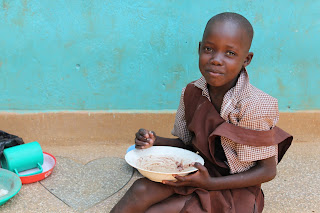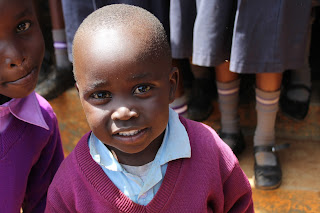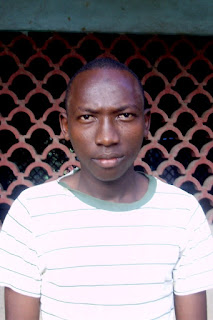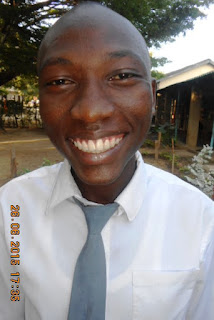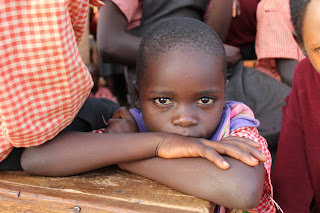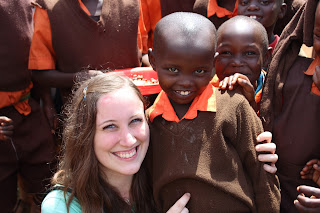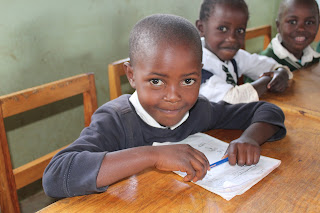Hello friends, I know I don't post often, but I am going through the training process to get my foster parent license and I thought I would share the timeline here - as a look-back for me and a help for anyone who might be considering the same.
As I begin, I'm in the very first stages of the training process, but I am curious to see what length of time lapses before my first child placement. The representative said 30-90 days from orientation to licensing, but I've heard stories of much longer lengths of time! We will see.
Before this timeline began were several months of talking to people who have fostered and interviewing with a few various agencies, as I didn't want to make the decision to foster lightly. The agency that I've chosen is the third that I've interviewed with - not including CPS, which I was considering, but I preferred a Christian-based agency for the support system and resources.
Foster Care Timeline:
January 20, 2016 - Interview with representative for a foster agency that I liked, but I didn't feel like I quit fit their needs (they're passionate about foster-to-adopt)
January 21, 2016 - Interview and private orientation for a foster agency that I also liked, but I didn't feel like I quite fit their needs (they're passionate about long-term foster care only)
January 23, 2016 - Conversation with someone at CPS; I was interested, but more passionate about a Christian-based agency
February through July (6 months) - After attending multiple meetings where I didn't feel the Lord saying "yes" and planning a group trip to Kenya in July, I took a break from interviews and meetings and spent time in active prayer about the next step to take
July 26, 2016 - Initial conversation with representative for my chosen foster agency (different agency from the first two in January)
August 2, 2016 - Foster Care Orientation and first training session
August 3, 2016 - TB test
August 6, 2016 - CPR Certification
August 7, 2016 - Two-hour Psychotropic Medication Overview Training
August 19 2016 - Finish reading The Connected Child, an assigned reading for training
August 20, 2016 - Built bunk beds for children's room, purchased smoke detectors, carbon monoxide detectors, and fire extinguisher
September 8, 2016 - Training sessions over sensitive communication, sound relationships, and child development
September 15, 2016 - Training session missed due to being out of the country - making this up during my home study
September 22, 2016 - Training sessions over separation, loss, and grief and child maltreatment
September 26, 2016 - Completed two-hour Trauma Informed Care training and two-and-a-half-hour Medical Consent training
October 26, 2016 - Fingerprinting
November 22, 2016 - Sent autobiography, house and yard floor plans, and dentist and doctor information
December 7, 2016 - Veterinary papers and rabies certification sent
December 13, 2016 - Received wellness check from physician
December 16, 2016 - Cleared TB test
January 21, 2017 - Behavioral Crisis Management Training (4 hours) and Medical Training
January 25, 2017 - Fire safety home check
January 27-29, 2017 - First placement; respite care for 3 children under the age of 5 years
February 3, 2017 - Home visitation
February 7, 2017 - Submitted income information
Wednesday, August 3, 2016
Sunday, July 3, 2016
Psalm 91
Tomorrow the CRF team leaves for Kenya. I have enjoyed
sharing 40 stories with you and I’m sure I’ll have more to share when I return.
Please pray for our safety in the air and for our ministry on the ground.
For my final story I simply want to share a passage in the
Bible. When I first traveled to Kenya in 2009, Psalm 91 seemed to appear
everywhere. It was spoken aloud on the radio as I drove to the airport, it was
the page I saw when I let my Bible fall open, and it appeared in notes and
sermons and seemingly everywhere I looked.
And so as I return to the country I now consider with as
much love as I would a second home, here is this precious chapter of the Bible
that seems to fit a long journey so well.
Psalm 91
Whoever dwells in the shelter of the Most High will rest in
the shadow of the Almighty. I will say of the Lord, “He is my refuge and my
fortress, my God, in whom I trust.”
Surely he will save you from the fowler’s snare and from the
deadly pestilence. He will cover you with his feathers, and under his wings you
will find refuge; his faithfulness will be your shield and rampart. You will
not fear the terror of night, nor the arrow that flies by day, nor the
pestilence that stalks in the darkness, nor the plague that destroys at midday.
A thousand may fall at your side, ten thousand at your right hand, but it will
not come near you. You will only observe with your eyes and see the punishment
of the wicked.
If you say, “The Lord is my refuge,” and you make the Most
High your dwelling, no harm will overtake you, no disaster will come near your
tent. For he will command his angels concerning you to guard you in all your
ways; they will lift you up in their hands, so that you will not strike your
foot against a stone. You will tread on the lion and the cobra; you will
trample the great lion and the serpent.
“Because he loves me,” says the Lord, “I will rescue him; I will
protect him, for he acknowledges my name. He will call on me, and I will answer
him; I will be with him in trouble, I will deliver him and honor him. With long
life I will satisfy him and show him my salvation.”
Saturday, July 2, 2016
Julius's Story
Julius’s earliest memory was when he was five years old. He
was already living on the streets at that point and he has no memory of any
relatives or parents. Julius does not know his tribe, a remarkable thing in
Kenya. He has no “mother tongue.” He speaks only English and Kiswahili. Julius grew
up completely and utterly alone.
To survive, Julius spent his days either begging for money
with other street boys or selling scrap metals on the roadside. Due to the
terrible conditions on the streets, Julius contracted a disease that caused his
entire body to shake.
For 4 years, Julius lived with a kindly neighbor, but her
house burned down and he was back on the streets again. Julius began to spend
the night at a video store that closed at one in the morning. His health
decreased as he struggled daily to survive.
Three years ago, Julius entered the Christian Relief Fund
sponsorship program, went to live at the Kimbilio Christian Academy, and got a
sponsor. For the first time he had security in where he lived. He had a real
chance to go to school to stay. And he had a sponsor who would become the
closest thing to family to him.
God sets the lonely in families. There is no truer
definition of lonely than what Julius has faced in his life. But he is in a
family now—his church family, his school family, his CRF family, his sponsor.
In a few days, Julius will meet his sponsor for the first
time. They will go on a safari together. They will embrace and talk,
face-to-face.
God sets the lonely in families. He brings together families
from across the globe, across cultures, across languages.
“A new command I give you: Love one another. As I have loved
you, so you must love one another. By this everyone will know that you are my
disciples, if you love one another.” -John 13:34-35
Friday, July 1, 2016
Joyful Poverty
I hesitate a little to share today’s story because I don’t
want to make anyone feel guilty about what they might have said before. Please
know that I’m not calling you out in any way if you have ever said this, but
that I’m only trying to inspire some further thought on poverty and orphan
care.
One misconception a lot of people have is that impoverished
children are incredibly happy. While it’s true that these children find joy
apart from material possessions and American comforts, I think labeling African
orphans with a broad label of “they’re always happy” can be damaging to relief
work.
So I will be clear. Suffering children aren’t always happy.
They’re malnourished; their stomachs ache from hunger and their bodies are
physically weak. They have diarrhea from parasites caused by drinking unclean
water. This makes them feel fatigued and nauseated. These children miss their
parents—and that grief and trauma is very real. When you see a slum in a
developing country, tragedy is there. Sorrow is there.
Truly, I don’t want to make anyone feel silly for having
said that poor children are happy. There are many reasons to say this. The children’s
happiness is not tied to material comforts, unlike many American children’s. I have
seen so much more graciousness and thankfulness for small things among orphans
than I have among American kids—they know what it is to go without, so many are
thankful and joyful when they do receive. There is joy that extends beyond the lack
of nice toys or a soft bed. Also, when you visit a school full of children
receiving help, they still do experience hardship and grief, but they are
flourishing. For the first time they’re able to live as children, and this is a
wonderful reason for the joy that you see. And finally, when you meet children
who love Jesus, his joy is in them—and that shines brighter than everything.
So there is joy among people who live in poverty. But there
is also grief.
Please remember that if an orphan is malnourished and ill
and without a family, they’re not always happy. They experience unimaginable
pain. This is why your support matters—because when you sponsor a child, you
are easing those burdens. You are providing hope to a child that is hurting.
Thursday, June 30, 2016
The Face of the Orphan Crisis
Child sponsorship is an incredible thing.
My family sponsors 5 precious children (I sponsor 2) that I never
would have known existed if CRF had not begun projects in their villages.
The statistics of global poverty and the orphan crisis are
so vast that it’s truly impossible to wrap your mind around the numbers. People
empathize with people more than they do with numbers, which is why I tell
stories of individuals more than I share the statistics.
When you choose to support a child in a developing country,
that child becomes the face of the orphan crisis to you. And when you see this child
grow and transform and gain literacy, you see extreme poverty fought and
conquered on very real and personal terms. For me, when I think of the orphan
crisis, the face I see is my Naomi’s.
The first time I met my sponsored daughter, my world froze. She
was real. She was huggable. She was beautiful. And to see her world of struggle
was to see my own collapse around me.
It’s like everything you know about your world is a lie when
you are forced to face the truth of poverty. Because in reality, there are
millions of children like my Naomi. Her story
caused tears to stream down my face because I saw how she lives and what she’s
lost and because I love her. And there are so many in her shoes.
I think about God’s intimate love for every child on this
earth and how his heart must break daily on account of the 132 million orphans who
are like my beloved Naomi. And my heart has broken a thousand times over for
her story. Why don’t our hearts break more for what breaks the heart of God?
Child sponsorship forges a relationship that never would
have existed otherwise—two people living across the globe from one another who
love each other like family. It’s precious. It’s a Christ-like model.
Sponsorship forever changes the lives of both people
involved.
Sponsor a child today.
Wednesday, June 29, 2016
Education and Poverty
Today we will talk about poverty and education.
The most important tool to fight poverty is education. When you
have entire communities of people who have never learned to read or write, who
have never been taught trades to provide for their families, and who don’t
understand AIDS and disease prevention, you’re faced with a cycle that is
unstoppable until some degree of education takes place.
32 million children in Sub-Saharan Africa alone are
completely uneducated. This is more people than the entire population of Texas.
Globally, 757 million adults lack basic literacy. Two thirds
of these adults are women.
According to the Global Education Fund, 8.5% of Kenyans
complete high school. Less than 60% enroll (with a 41% attendance rate). School
tuition is incredibly overwhelming for a family in poverty.
Public school in Kenya is “free.” By this, I mean that
students must pay for uniforms, books, exams, and other “fees” that cover the cost
of teachers’ salaries—and many families aren’t equipped to afford this. When a
family makes less than $10 a day (80% of the world) and has multiple children
who want to go to school, this “free” education quickly becomes unreachable.
And high school is a much higher expense.
When you sponsor a child with CRF, you are covering these
impossible costs. $35 a month might triple a family’s monthly income—and it’s
going directly to the needs of your child.
When you educate one student, you’re empowering someone who
can make a tremendous impact on an entire community.
Subscribe to:
Posts (Atom)

